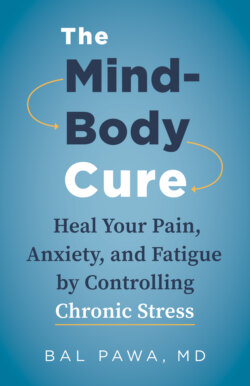Читать книгу The Mind-Body Cure - Bal Pawa - Страница 13
На сайте Литреса книга снята с продажи.
UNDERSTANDING MINDSET
ОглавлениеWe have examined the mind and its various dimensions. We understand that the brain is constantly generating thoughts and random observations that are fleeting. A mindset is a specific lens or frame of mind that orients us to a particular set of associations and expectations; it is our unique view of the world.5 It runs our body “automatically,” as if on autopilot. Our mindset can be influenced by our conscious mind, our subconscious mind, or a combination of the two. As we’ve seen, psychologists believe that our subconscious mind forms the backdrop to most of our thinking. Our experiences with things and people in our early life and the emotions and meaning we associate with those experiences are stored in our subconscious and form the basis of our mindset. To change your mind in an instant is easy, but to change your mindset requires more work and this is the premise of creating health.
Some of us naturally gloss over the negative and see everything through rose-colored glasses, whereas some of us store and amplify negative experiences. For example, adverse childhood experiences often negatively influence our mindset.6 While it intrigues me whether optimism and pessimism are inherited traits or acquired, our subconsciously stored memories cause us to view life experiences with a pre-set lens. This subconscious program contains paths of least resistance, familiar outcomes, and often fear-based behaviors. And while this automatic mechanism can help us operate efficiently for repetitive tasks, allowing our subconscious pathways to run our entire life is problematic if we have downloaded bad habits or conditioned ourselves to less-than-optimal health. Ideally, it would be wonderful if we could simply have a mindset that was automatically set to default to healthy behaviors.
Although many of us have good intentions when it comes to our health, we easily fall back on automatic habits and become derailed when we don’t involve our conscious mind. And if our subconscious lens magnifies negative experiences, we may even look for negative experiences to reinforce what is pre-set, thereby sabotaging our best efforts to make change. It requires awareness, effort, intention, and repetition to transform poor habits into good habits. I know from my own practice that some people run an automatic program of health and wellness and overcome obstacles more easily than those who have a mindset of blame, shame, guilt, or being a victim. Others continually run into challenges, oblivious to the automatic expectations they have set up for themselves. The bottom line is that our mind can make us sick or our mind can manufacture health. Thus, we must choose carefully and consciously what program we want running our body automatically (subconsciously)!
